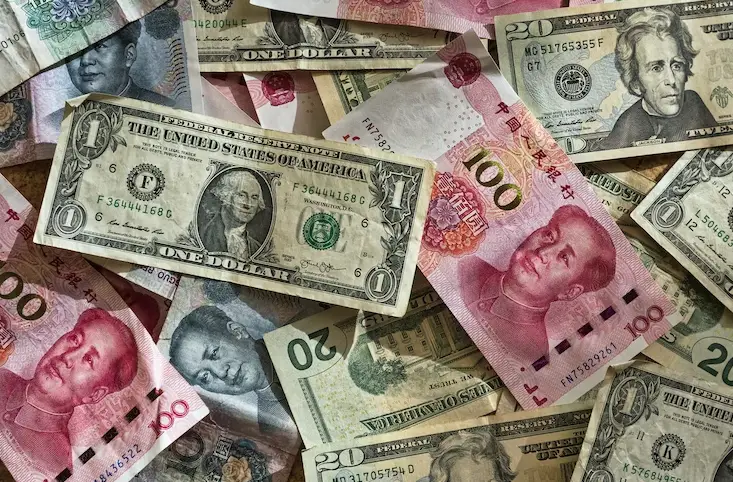A monthly financial market report published Monday by the Bank of Russia (CBR) revealed that the the share of the Chinese yuan on the Moscow exchange (MOEX) reached an all time high this March.
The CBR reported that the yuan accounted for 39% of the total volume of trading in major currencies, an increase from the 37% seen in February, according to CBR data. At the same time, the dollar’s share fell, from 36% to 34% over the prior month. By comparison, one year ago, the dollars share stood at 87.6%, while the yuan’s share was only 0.32%.
The regulator concluded, “Market participants continued to reduce the volume of transactions in ‘toxic’ currencies in exchange trading.” Russia has deemed the dollar as well as the euro, as toxic since due to Ukraine-related sanctions, Russia is unable to use these currencies to settle international trade obligations with foreign partners.
In terms of monthly trading volume the yuan had never outpaced the dollar on MOEX before February. However by February’s end, ruble-yuan trading volume was roughly valued at 1.49 trillion rubles ($18.1 billion) compared to 1.43 trillion ($17.4 billion) in dollar-ruble trading volume.
By March, the turnover in yuan had increased to 2 trillion rubles ($24.3 billion), compared to 1.7 trillion rubles ($20.7 billion) in dollar transactions.
The report also made mention of the fact that Russian citizens significantly increased the volume of their purchases of yuan, from 11.6 billion rubles in February, up to 41.9 billion in March. Foreign currency can be purchased through banks and money exchanges, and in addition, Russian banks also offer foreign currency accounts. Russian citizens will often buy foreign currencies to hedge against ruble volatility.
Experts say the shift in the trading volumes of the dollar and the yuan are attributable to Russia’s shift away from using the currencies of so-called “unfriendly” countries to settle trade obligations, following the imposition of economic sanctions designed to punish the nation for the invasion of Ukraine.
The sanctions have included the blacklisting of a number of Russian banks and wealthy individuals, as well as closing Russian banks out of the SWIFT interbank messaging system. The sanctions also banned transactions with Russian financial entities, and froze Russian foreign exchange reserves.
Finance Minister Anton Siluanov said in February that Russia could no longer trust the US dollar as a trade instrument, calling it “a completely unreliable instrument.”
In late March, in comments on the matter, Russian President Vladimir Putin noted Russia would have continued to trade in dollars, however it was forced to de-dollarize due to the sanctions.
He stated, “We would use the dollar, but they won’t allow us to do that, so how do we make payments? In a currency that is acceptable to our trading partners. The yuan is one such currency, especially since it is also used by the International Monetary Fund.”

